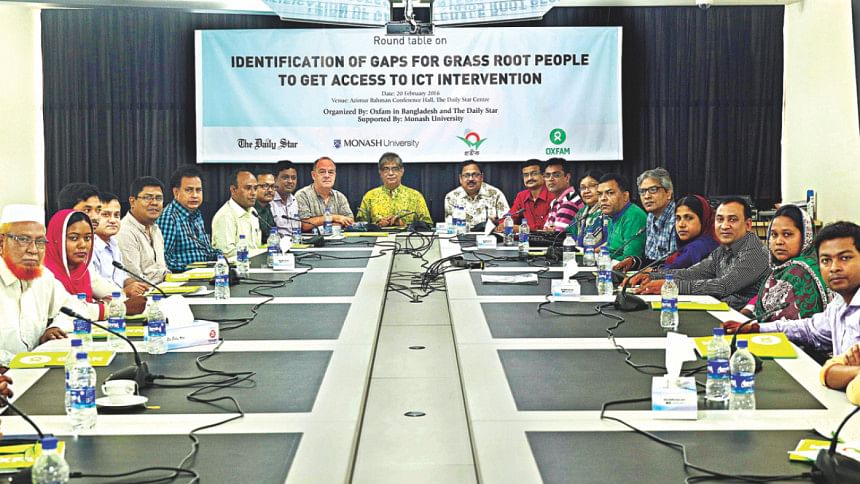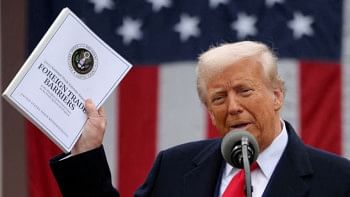Digital content for grassroots people is the way forward

An ICT expert yesterday recommended generating digital contents or solutions for the grassroots people to get the expected outcomes from the digital drive.
“The importance from the state has been given on providing devices such as smartphones, tablets and computers. But we do not provide contents for them,” said Mustafa Jabbar, a former president of Bangladesh Computer Samity.
“We provide the device first and then the contents, when it should be the other way round.”
The focus should be on quality, not on quantity, Jabbar said.
“We are developing 500 apps, but if 499 of these are not helpful, what are the benefits of these apps?”
Jabbar came up with the suggestions during a roundtable on the identification of gaps for grassroots people in their access to ICT.
Oxfam, The Daily Star and Monash University jointly organised the roundtable at The Daily Star Centre. The discussion was moderated by MB Akhter, programme director of Oxfam.
Jabbar said the contents would have to be in both online and offline formats. The contents will have to interactive and multimedia-based.
Earlier, while presenting a keynote paper on “digital Bangladesh”, he said the number of mobile connections in Bangladesh was 4.46 crore in 2008. It stood at 13.31 crore in 2015.
The number of internet users, which were 12 lakh in 2008, rose to 5.39 crore in 2015.
Worldwide, the number of mobile connections is 706 crore and the internet users are 320 crore, said Jabbar, also the chief executive officer of Ananda Computers.
“No-one was using Facebook in 2008, but now 1.7 crore people are engaged with the social media in Bangladesh,” he said, adding that the most significant issue is that Tk 550 crore are being transacted a day through mobile banking.
Of the handset imports, 20 percent are smartphones and the rest are basic phones.
“It is necessary to transform the situation,” he said, while stressing on research on transformation.
Jabbar went on to cite the case of Mexico, where internet access is a constitutional right. “It should be the same in Bangladesh.”
Saiful Huda, a professor at Hajee Mohammad Danesh Science & Technology University, said the apps should be developed based on the demand of grassroots people. “We should know what the grassroots people want.” It is not in a top-to-bottom approach as being practised now: the app developers generate the apps as they wish. The approach should be “bottom-to-up”, he said.
Shahid Uddin Akbar, chief executive officer of Bangladesh Institute of ICT in Development, said for many ICT means “help desk” or “SMS-based” solution. “But the ICT has gone far in other countries.”
Pavel Hoq, chief operating officer of Grameen Intel Social Business, said the present approach to reach the grassroots people is most likely passive.
But the approach should be active, focusing on the demands of the target audience or the recipients, he added.
BM Mainul Hossain, an assistant professor of the Institute of Information Technology at Dhaka University, said the language barrier is a major challenge in getting expected outputs from ICT intervention.
The solutions that are being generated are not for all grassroots people, as scientific names and book words are being used in the apps or in the solutions, he said. He also suggested ensuring broadband or high-speed internet services for all.
“It takes several hours to download a file or to use an app with the existing speed of internet. If we don't have a good enough internet speed, what will we do with the apps?”

 For all latest news, follow The Daily Star's Google News channel.
For all latest news, follow The Daily Star's Google News channel. 



Comments